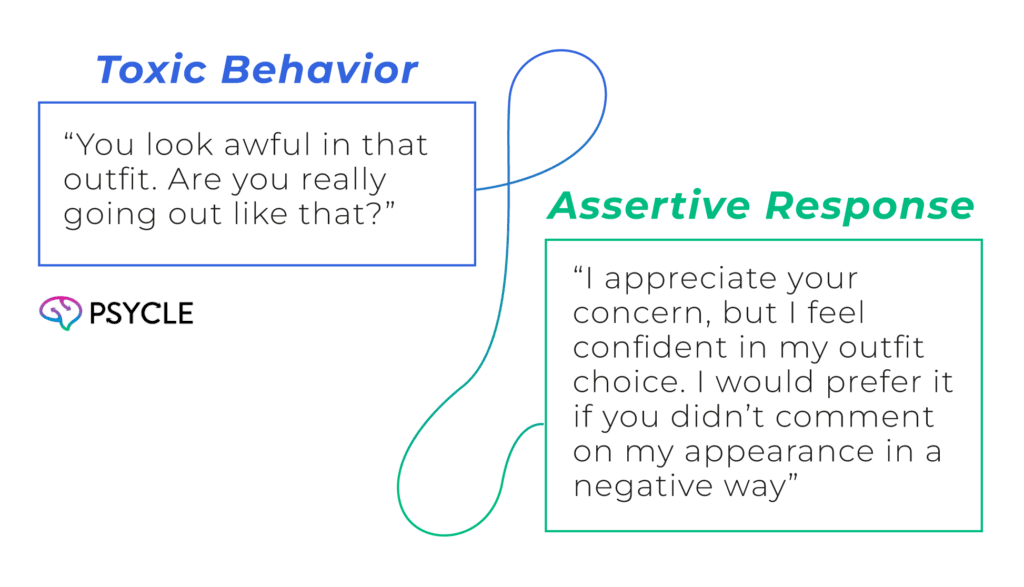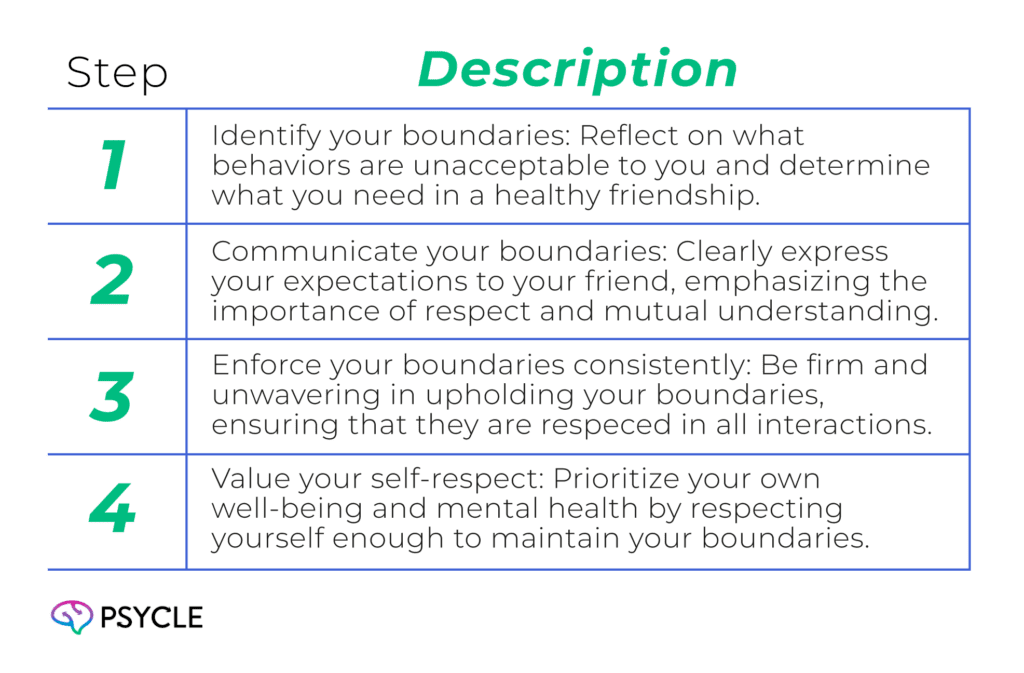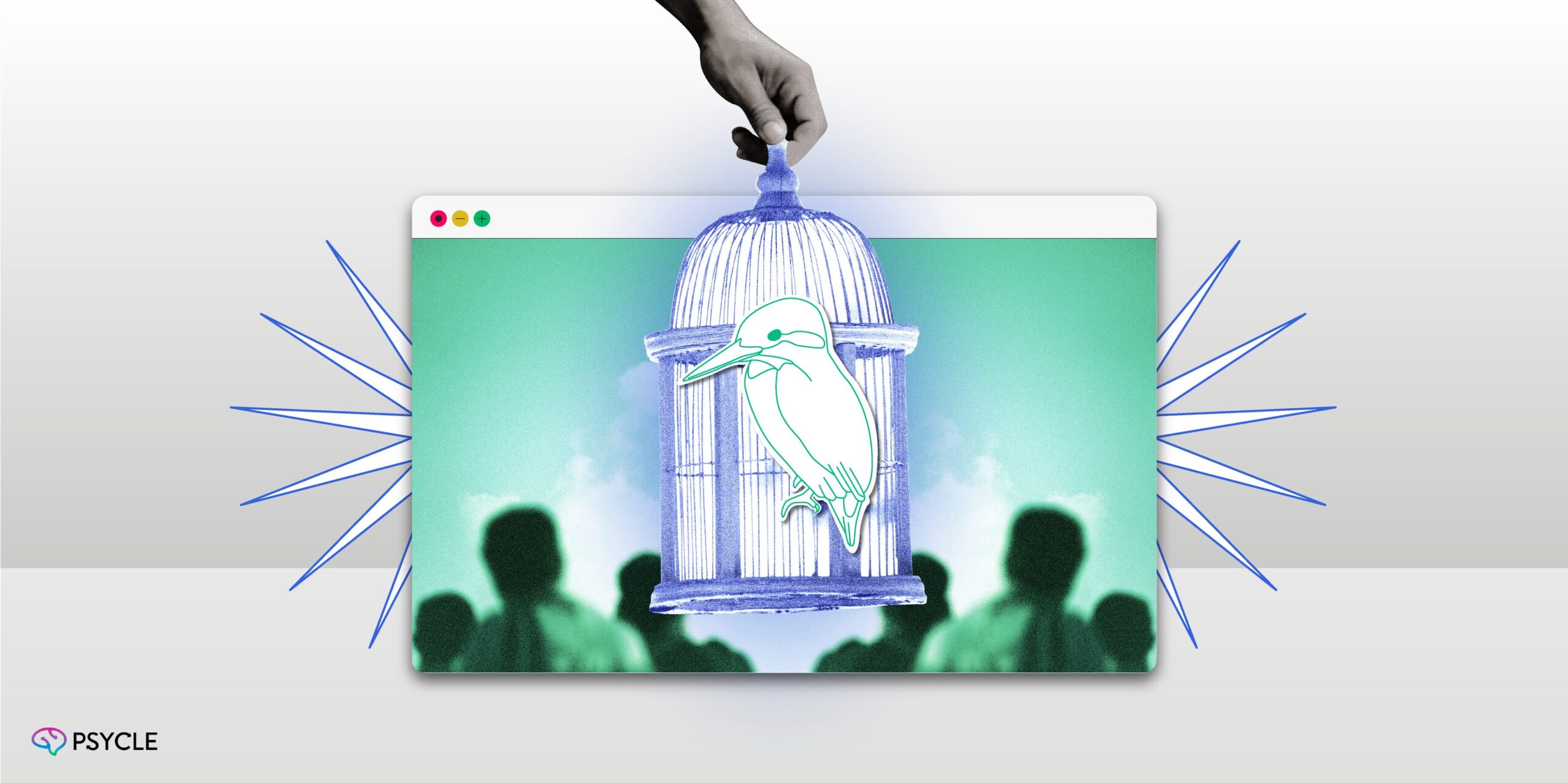Friendship is a fundamental part of human existence. As social creatures, it’s in our biology to want a close support network of people we love and trust. Across the world, studies show social contact is associated with subjective happiness.
However, not all friendships are positive, and certain people may cause more damage to our well-being than good. We know these relationships aren’t healthy for us, yet we continue to spend time with them for various reasons. This could be shared history, family ties, or understanding their suffering causes them to behave in these ways.
It’s therefore critical we set boundaries with these people. Rather than neglect them entirely, we can choose to put ourselves first and set limits on the way we interact with them.
This article will discuss how to recognize toxic friendships and how to set and maintain effective boundaries.
Key Takeaways
- Recognize the signs of a toxic friendship.
- Understand the impact of toxic friendships on mental health.
- Communicate your needs clearly
- Define and stick to your boundaries.
- Practice self-care.
Recognizing the Signs of a Toxic Friendship
By its very definition, you can know whether a friendship is toxic by whether you feel harmed after spending time with this person. Friendships should make you feel uplifted, confident, and energized, but toxic friends can make you feel the opposite.
Negative Behavior Patterns
Toxic friendships are characterized by various negative behavior patterns that can have a detrimental impact on your mental and emotional health. Some common signs of a toxic friendship include:
- Constant criticism: Toxic friends may often criticize you constantly, leaving you feeling belittled or worthless.
- Lack of support: These friends may fail to offer emotional support or dismiss your achievements and problems.
- Manipulation: Toxic friends may manipulate you to serve their own interests, disregarding your own needs and boundaries.
- Controlling behavior: They may exhibit controlling tendencies, seeking to exert power and authority over your actions and decisions.
- Unhealthy competition: Toxic friends may engage in unhealthy and damaging competition, constantly comparing themselves to you and trying to one-up you.
- Gossiping and betrayal: They may engage in gossip or betray your trust by sharing personal information without your consent.
Understand the Impact on Mental Health
Toxic friendships can have a significant impact on mental health. The constant criticism, manipulation, and lack of support from a toxic friend can lead to feelings of anxiety, depression, low self-esteem, and stress. Understanding the negative effects of a toxic friendship on your mental health can motivate you to set and maintain boundaries.
Communicate Your Needs Clearly
Once you have identified a toxic friendship, it is important to communicate your needs clearly to your friend. Clear and direct communication is key to setting effective boundaries and ensuring that your needs are understood and respected. Expressing your boundaries assertively will help you establish a healthier dynamic in your friendship.
Use Assertive Communication Techniques
Assertiveness is crucial when communicating your boundaries in a toxic friendship. By using assertive communication techniques, you can express your needs in a clear, confident, and respectful manner. Here are a few strategies to help you communicate assertively:
- Use “I” statements to express how the toxic behavior makes you feel.
- Stay calm and composed during the conversation, even if the other person becomes defensive.
- Be specific and provide examples of the behaviors that are causing distress.
- Maintain eye contact and use a firm but respectful tone of voice.
- Try to maintain a confident, strong posture with an erect spine
Be Clear about Your Boundaries
When communicating your needs, it is important to be clear about your boundaries. Clearly define what behaviors are unacceptable to you and the consequences of crossing those boundaries. This clarity will help your toxic friend understand the seriousness of the situation and the importance of respecting your boundaries.
By helping these people understand their toxic behaviors, you can also prevent them from causing harm to others. This will also be useful to that person, as it can increase the chance for them to make and form positive friendships.
Remember, clear communication is the cornerstone of effective boundary setting. It is through open and honest conversations that you can foster understanding and create room for positive change. By expressing your needs assertively, you are taking a powerful step towards reclaiming your mental and emotional well-being.
Example of Assertive Communication
Let’s suppose your toxic friend constantly criticizes your appearance:

The above example demonstrates how to address the toxic behavior while maintaining assertiveness, expressing your boundaries, and emphasizing the importance of respectful communication.
Define and Stick to Your Boundaries
Setting boundaries is an essential step in managing toxic friendships, but it doesn’t end there. To effectively address the toxicity, you must clearly define your boundaries and commit to sticking to them. This involves establishing what is acceptable and not within your friendship and communicating these limits to your toxic friend.
The different types of boundaries to consider include:
- Emotional boundaries: These involve recognizing and respecting your own feelings and the feelings of others. It means not allowing others to manipulate or invalidate your emotions.
- Physical boundaries: Involving personal space, touch, and physical contact.
- Time boundaries: Setting time boundaries means saying no to commitments that may overwhelm or exhaust you. It also involves not allowing others to disrespect your schedules, for instance, always showing up late to arrangements.
- Material boundaries: Establishing material boundaries involves determining what possessions or resources you are willing to share and under what conditions.
- Intellectual boundaries involve respecting others’ thoughts, ideas, and opinions. Intellectual boundaries recognize that people have different perspectives and beliefs, and it’s important to maintain open and respectful communication.
Defining boundaries alone is not sufficient and consistency is key in asserting yourself and maintaining those boundaries. It’s important to reinforce your boundaries, demonstrating that you take them seriously and expect them to be respected. This helps prevent the toxic behavior from persisting and strengthens your position.
Additionally, sticking to your boundaries requires self-respect. Prioritize your own well-being and mental health by respecting yourself enough to uphold the boundaries you have established. By doing so, you send a powerful message that your self-respect is non-negotiable and that you deserve to be treated with kindness and consideration.
Steps to Define and Stick to Your Boundaries

By defining and sticking to your boundaries, you empower yourself to create a healthier and more fulfilling friendship dynamic. Remember, setting boundaries is an act of self-care and self-preservation, and it allows you to cultivate relationships that positively contribute to your overall happiness and well-being.
Practice Self-Care
When it comes to setting boundaries with toxic friends, it’s not just about protecting yourself from their negative behavior but also prioritizing your own mental and emotional health. Self-care plays a crucial role in this process, allowing you to nurture and prioritize your overall well-being. By engaging in activities that bring you joy and relaxation, you can create a healthy balance in your life.
Self-care can take many forms, and it’s important to find what works best for you. Here are some self-care practices that you can incorporate into your routine:
- Engage in activities you enjoy, such as hobbies, exercise, or spending time in nature.
- Take time for relaxation and rest, ensuring you get enough sleep each night.
- Practice mindfulness and meditation to cultivate a sense of peace and calm.
- Connect with loved ones who bring positivity into your life.
- Set aside dedicated time for self-reflection and journaling.
Remember, self-care is not selfish. It is a necessary practice for maintaining your mental and emotional well-being. By prioritizing your self-care, you are better equipped to handle the challenges that toxic friendships may bring.
Seek Support from Trusted Individuals
Dealing with a toxic friendship can be challenging, but you don’t have to face it alone. Seek support from trusted friends or professionals who can provide guidance and validation during this difficult time.
Share your experiences and feelings with someone you trust. Having a support system in place can help you navigate the process of setting boundaries with toxic friends. Sometimes, talking about your experiences can bring clarity and perspective.
If you find that the impact of a toxic friendship is overwhelming, it may be beneficial to consider seeking therapy or counseling. A trained professional can offer valuable insight and strategies for managing toxic relationships and prioritizing your mental health.
Remember that seeking support is not a sign of weakness; it’s a proactive step toward healing and growth. Surround yourself with individuals who have your best interests at heart and can provide the support you need on your journey to reclaiming your peace of mind.
Know When to Walk Away
Sometimes, setting boundaries may not be enough, and the healthiest choice is to end the toxic friendship. Recognizing toxicity and prioritizing your own well-being is crucial in this process. Walking away from a toxic friendship is an act of self-preservation that allows you to create space for healthier relationships.
Embrace Therapy
To navigate toxic friendships and prioritize your mental health, embracing therapy can be a valuable tool. By seeking professional support, you can gain guidance and strategies for setting and maintaining boundaries. Therapy provides a safe space to process the emotions and challenges that come with toxic relationships.
A qualified therapist can offer:
- Guidance in recognizing toxic patterns and behaviors in your friendships.
- Support in understanding the impact of toxic relationships on your mental health.
- Strategies for setting and communicating clear boundaries with toxic friends.
- Tools to enhance your assertiveness skills for effective communication.
- Techniques to improve your self-esteem and self-worth.
- Healthy coping mechanisms to manage the stress and emotions associated with toxic relationships.
Conclusion
In conclusion, toxic friendships can have a detrimental impact on our mental health and well-being. However, there are strategies we can implement to set boundaries and reclaim our peace of mind. By recognizing the signs of a toxic friendship, we can take the necessary steps to protect ourselves from negative behavior and its effects on our mental health.
FAQs
How Do I Recognize the Signs of a Toxic Friendship?
Signs of a toxic friendship include constant criticism, lack of support, manipulation, controlling behavior, unhealthy competition, gossiping, and betrayal.
How Can I Communicate My Needs Clearly to a Toxic Friend?
Use assertive communication techniques to express your boundaries and let your friend know what behaviors are unacceptable to you.
How Do I Define and Stick to My Boundaries With a Toxic Friend?
Clearly define what is acceptable and what is not in your friendship and be consistent in enforcing your boundaries.
What Role Does Self-Care Play in Setting Boundaries With Toxic Friends?
Prioritize your own well-being by engaging in activities that bring you joy and relaxation and taking care of yourself physically, emotionally, and mentally.
Who Should I Seek Support From When Dealing With a Toxic Friendship?
Share your experiences and feelings with someone you trust and consider seeking therapy or counseling for guidance and validation.
When is it Time to Walk Away From a Toxic Friendship?
Recognize when the toxicity outweighs the benefits of the friendship and prioritize your own well-being. Walking away is an act of self-preservation.
How Can Therapy Help Me Navigate Toxic Friendships?
A therapist can provide guidance, support, and strategies for setting and maintaining boundaries and help you process the emotions and challenges that come with toxic relationships.

